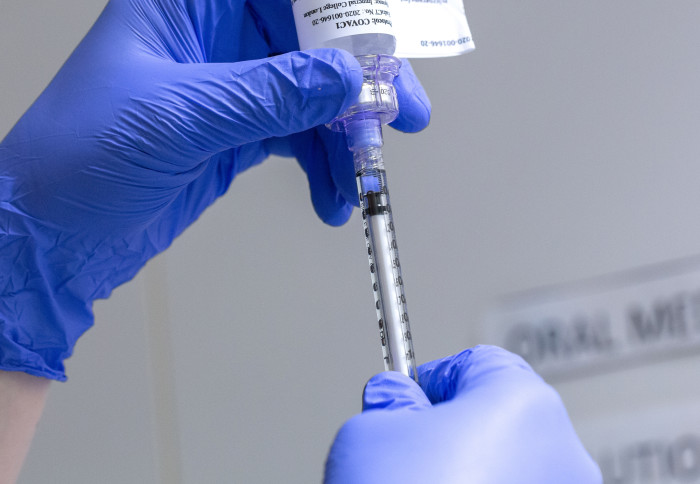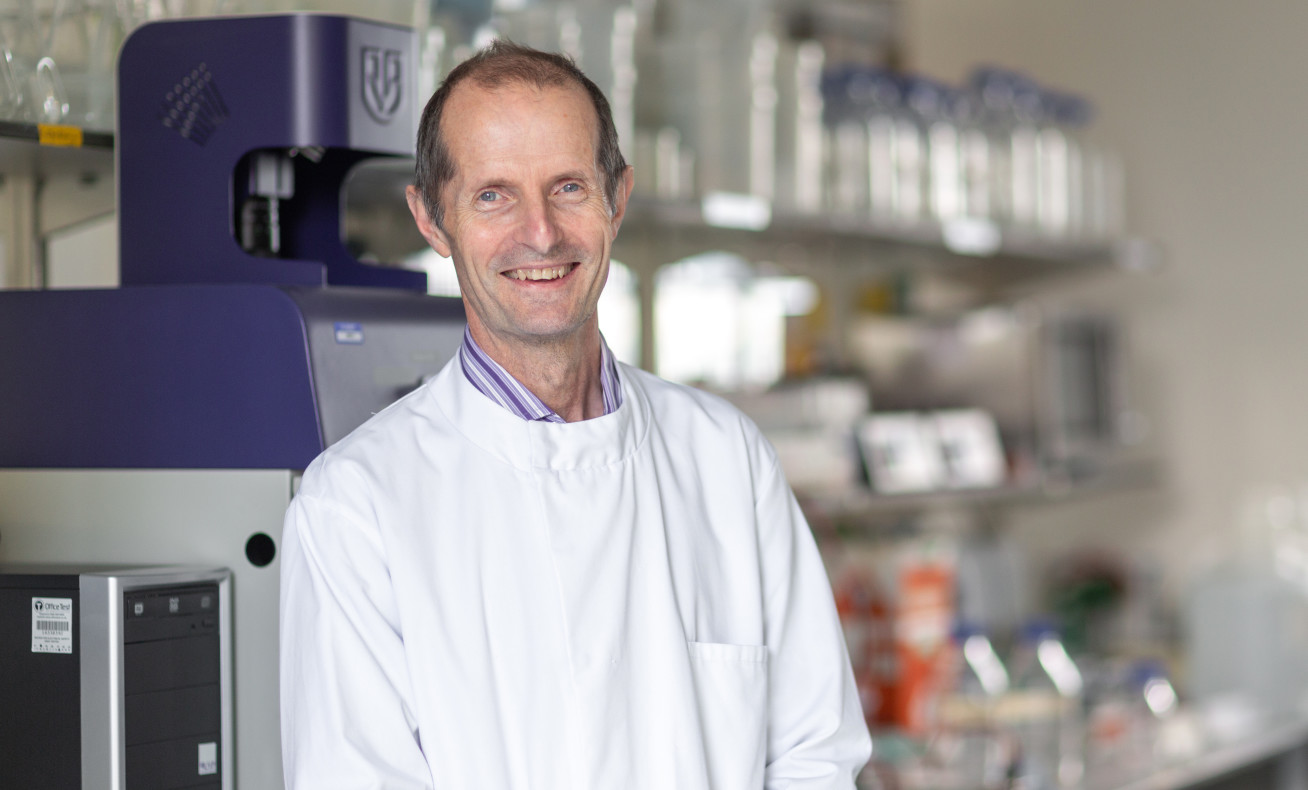COVID-19 vaccine Q&A - latest news, antibody tests and tackling new variants
by Kate Wighton

Professor Robin Shattock, head of the Imperial COVID-19 vaccine project, and Dr Katrina Pollock, clinical lead, discuss latest developments.
How worried should we be about new Coronavirus variants?
Professor Robin Shattock: It’s important to stress that scientists always expected new variants of COVID-19 to emerge during the pandemic, due to the sheer number of people who are infected across the world. The more people are infected, the more opportunity for the virus to mutate.
The speed, agility, and adaptability of our saRNA technology enables us to create a potential vaccine against the new strains in around three weeks. Professor Robin Shattock
But it’s also important to make clear that the new COVID-19 variants we are seeing in the UK and around the globe will not stop the current licensed vaccines working overnight. The current vaccines will still provide protection against COVID-19, and everyone should attend their vaccine appointment once they receive their invitation. However, we do need to now think about how we can quickly produce updated vaccines or booster infections against the new variants, should we need them.
Can your technology provide protection against the new COVID-19 variants?
RS: With the emergence of new variants of the SARS-CoV-2 virus (the virus that causes COVID-19), we are now using our self-amplifying RNA technology to make new vaccine candidates against these variants.
These could provide an update or booster jab to the current authorised vaccinations, to ensure people are protected against disease from emerging strains.

Our technology uses bits of genetic code, called self-amplifying RNA (saRNA), that carry instructions to make a protein found on the outside of the virus called the spike protein.
Once injected into the muscle of the arm, the cells make this spike protein, enabling the immune system to generate defences against the virus.
Using this technology, the lab team are currently working hard to make vaccine candidates that will protect people against the new variants of COVID-19.
The speed, agility, and adaptability of our saRNA technology enables us to create a potential vaccine against the new strains in around three weeks. Depending on regulatory requirements, this would then take a further few months to get through clinicals trials and be ready to use in people.
How will we bring COVID-19 under control?
RS: COVID-19 will be with us for many years – potentially decades - and we want to be able to offer vaccines, or booster jabs, that provide as much protection as possible. The team are currently exploring new formulations for vaccinations and boosters.
Many people are now taking SARS-CoV-2 antibody tests, but a positive antibody test does not necessarily mean a person is protected against COVID-19. Dr Katrina Pollock
The whole globe must be vaccinated against COVID-19 if we are to ever gain control over this virus. If only part of the world is protected, this incomplete picture could result in the UK, and any country, needing to use lockdowns indefinitely.
We are also looking at combinations of different vaccines. Early pre-clinical, animal studies suggest using our self-amplifying RNA vaccine in combination with the adenoviral vectored vaccine (ChAdOx1) produces a greater antibody response compared to a single dose of either vaccine.
Do RNA vaccines still need to be stored at sub-zero temperatures?
RS: We are currently investigating how to store RNA vaccines in a fridge, rather than at sub-zero temperatures. RNA is a fragile molecule, and so RNA vaccines must be stored at between -20 to –70 Celsius. But for these vaccines to protect people in every nation across the globe, and to be used in lower- and middle-income nations where they may not have access to specialist storage facilities, this hurdle needs to be overcome.
Will we see more RNA vaccines emerge over the coming years?
RS: Absolutely. This technology has enormous applications for tackling infectious diseases, but also for other conditions. For instance, it has the potential to provide new treatments for conditions such as cancer, and even gene disorders such as cystic fibrosis.

We are one of the few vaccine projects in the world to have started with a previously untested technology. As a testament to the incredible speed of this technology, within a year we have taken an approach never before tested in humans, and created a vaccine candidate that is safe and produces an immune response.
Yet with this pioneering approach we have kick-started the UK’s RNA vaccine sector.
We are grateful to philanthropists and the government for their continued support and investment. We now need continued support to secure a thriving RNA biotech sector that provides a legacy for the UK, ensuring we don’t remain in the slow lane for this truly transformative technology.
Many people have questions about antibody tests for SARS-CoV-2. Can you provide some information on these?
Dr Katrina Pollock: Many people are now taking SARS-CoV-2 antibody tests, but a positive antibody test does not necessarily mean a person is protected against COVID-19. This is because there are many distinct antibodies and many different types of test. We do not yet know for certain what kind of antibody shows you have protection against disease, or how much is needed in the blood.
We receive many emails from people who have received one of the authorised vaccines in the UK, but then take an antibody test that shows they do not have antibodies against the virus.
They are worried this means the vaccine has not worked – but this is not necessarily the case. Although an antibody test may be able to tell if you have been previously infected with SARS-CoV-2, it will not be able to tell if you are protected following a vaccine.
Many antibody tests detect a type of protein in the SARS-CoV-2 virus called the N-protein. This protein is not found in most COVID-19 vaccines. So even after having a COVID-19 vaccine, in most cases there will not be an antibody response against the N protein, and an antibody test will be negative.
Article text (excluding photos or graphics) © Imperial College London.
Photos and graphics subject to third party copyright used with permission or © Imperial College London.
Reporter
Kate Wighton
Communications Division